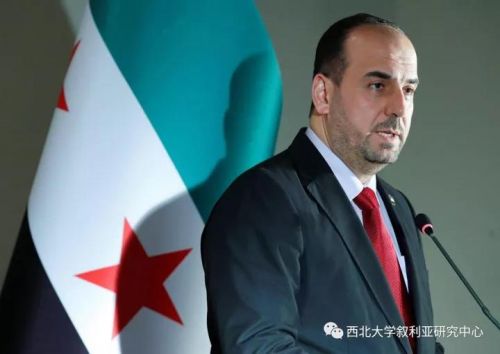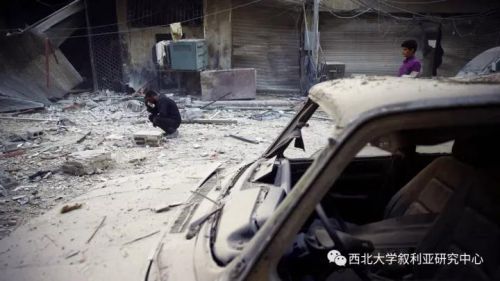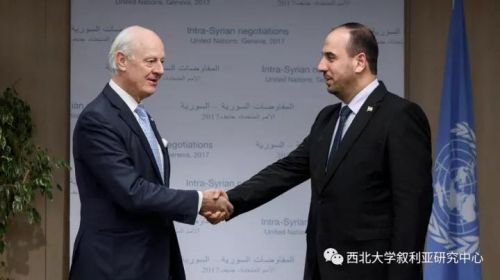The UN-sponsored Syrian peace talks in Geneva have been underway since November 28 and although there have been indications that this round may give birth to new achievements for the successful and peaceful settlement of the Syrian civil war, the obstacles are still obvious.
There are several factors that may contribute to the possible promising breakthrough.
One the one hand, with the help of Russian military support, the Syrian regime has made major advances against its opponents in the past two years, seizing back large chunks of the country.



On the other side, after intensive coordination from Saudi Arabia, opposition representatives - united in one delegation for the first time - arrived in the Swiss city to attend the conference.
The new opposition negotiating team includes members of the Saudi-backed High Negotiations Committee (HNC), which insists on Assad’s departure, as well as representatives of groups based in Moscow and Cairo that have a more moderate stance towards Syria's president.
The issues surrounding negotiations are complex and multi-layered and the major complicating point is that the various Syrian opposition parties, such as Syria National Coalition (SNC) backed by the United States, the High Negotiation Committee (HNC) supported and coordinated by Saudi Arabia, and other opposition parties backed by Egypt and Russia, have failed to form a united stance to challenge the Syrian government led by Bashar al-Assad.
Although the Syrian opposition parties have formed a united delegation, the opposition delegation is still far from united.
Before the opposition delegation was formed, Saudi Arabia hosted a preparatory three-day meeting of opposition parties to persuade the “hardliners” and to diminish divisions.
As a result, the head of HNC, former Syrian government Prime Minister Riyad Hijab, had to resign from his post and Nasr al Hariri, a “moderate” as described by the Russian foreign ministry, became the new leader and representative of the different opposition negotiation group.
Hariri’s new job will not be easy. On the one hand, the opposition negotiation team is far from united. The 36 opposition representatives led by Hariri attending the Geneva talks include eight from the SNC, five from the National Coordination Committee for Democratic Change (NCC), eight independent delegates, four each from the Cairo- and Moscow-based platforms and seven from military factions.
Different representatives have different agendas and arguments over various sensitive issues.
For example, although Nasr Al-Hariri had said that his camp still insisted on Assad’s removal as part of any peace deal, defying calls for moderation, there are other members of the delegation who maintain that the opposition parties should “respect the reality” and “be more flexible”.
Meanwhile, although the opposition military delegation includes Jaish al-Islam, Failaq al-Sham, Jaish al-Nasr, Liwa Shuhada al-Yarmouk, several Free Syrian Army (FSA) factions, and the Jordan backed Free Tribes’ Army, the Syrian Kurds, who have occupied and effectively controlled large areas of northern Syria, failed to be invited to the Geneva talks, due to strong opposition from both the Syrian government and other opposition groups.
Given the fact that the Syrian Kurds led by the Kurdish Democratic Union Party (PYD) has been an important part in Syria civil war, it is unimaginable that the future Syria political construction would be achieved without the involvement and agreement from Syrian Kurds and the PYD.
For the opposition parties, it is important to respect the political and military realities in Syria after years of civil war, and it is important to unite their own position and stance overcoming possible divisions.
To give up some preconditions such as “Assad must go” and start the political negotiation process might mean winning the interests of the Syrian people.
(The author is a PhD candidate at the School of Political Science of University Haifa and a research fellow at Syria Research Center of Northwest University. The author’s opinions are his own and do not necessarily reflect those of CGTN.)
